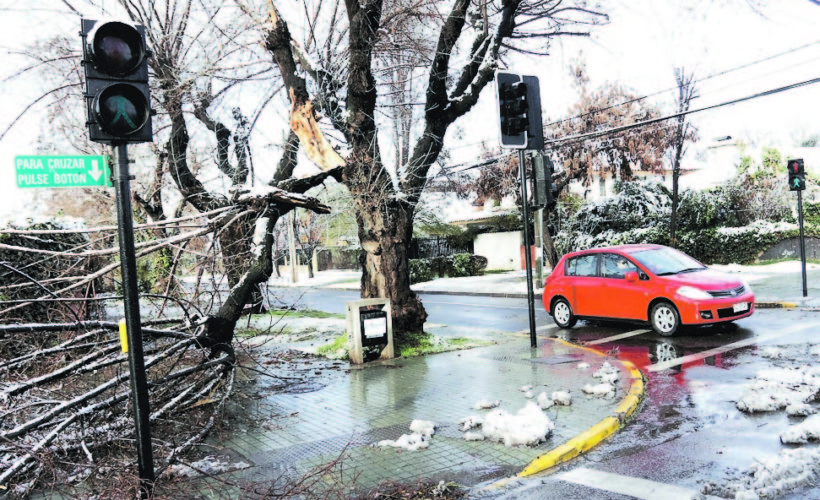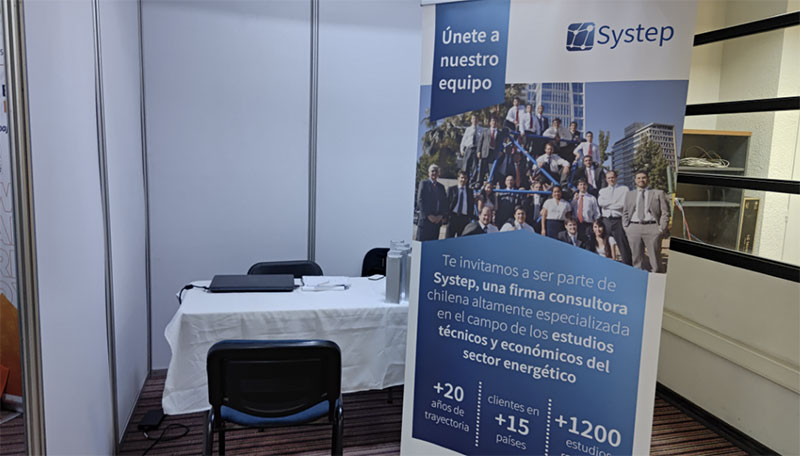
Hugh Rudnick’s blog.
Shared responsibility
THE COLLAPSE of the electricity supply to thousands of Santiago homes with the July snowstorm, aggravating conditions already present with torrential rains in June, with a complex and excessively slow replenishment of the supply, infuriated the population, which increasingly depends on electricity supply for their daily lives.
It is clearly not acceptable that there are still customers without supply, one week before the event.
What happened is partly the responsibility of the electric distribution companies themselves, which were overwhelmed by these events, with an infrastructure that is not prepared to receive snow of more than 30 centimeters in the upper districts of the city.
The snow caused the mechanical collapse of many grids, mainly due to falling trees, which dragged down entire power grids. Walking the streets of the eastern part of the city offered views of avenues with huge trees on the ground, uprooted, interspersed with poles and electrical conductors.
However, it should be noted that, given the remuneration scheme of the distribution companies, it is not possible to ask them to be prepared to respond to such an extreme event, which happens every 40 years. Far more resources than those incorporated in the tariff would be required to respond to such an extreme condition. The capacity to repair damages, through on-site crews, is totally surpassed with a contingency such as this one, even when support crews from other distributors were requested (assistance was received from CGE and Chilquinta).
Where the distribution companies did respond poorly, Enel in particular, was in its very weak response to its customers and the absence of clear and timely information.
It is not justifiable that residents of Santiago complain to the company, their complaints are received -although not always- and there has been no response in five days.
If clients had been warned in a timely manner of the severity of the damage and that the repairs could be spread out over time, they would have been better able to cope with the resulting uncertainty by taking alternative measures in the face of the severity of the situation.
Another failure, although not the exclusive responsibility of the distributors, is that of tree pruning. Clearly better and timely pruning in the fall, along with identification of dangerous trees in close proximity to the netting, would help limit damage.
The pruning that is actually remunerated is very limited; no resources are allocated to prepare for extreme events, which are so unlikely. In addition, this matter is a shared responsibility with municipalities and the Ministry of Public Works (MOP).
Actions such as removing trees under the network or removing dangerous trees are jobs that could not be carried out by the distribution company on its own.
Ideally, there should be a clean strip of about five meters under the electrical conductors, without large trees, but probably neither the population nor the municipalities would be willing to do so.
Finally, burying the entire power grids could be a solution, eliminating the possible impacts on overhead lines, but this would imply increasing investments by more than five times, with the consequent tariff increases, which are not justified in an economy like ours.
Partially undergrounding the distribution in some neighborhoods of the capital proved to be a partial solution, and in fact did not prevent supply cuts, as the overhead lines were often damaged anyway.





